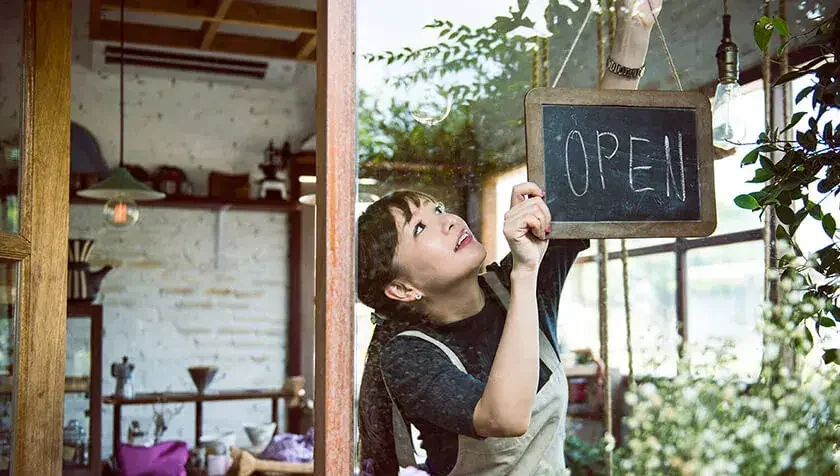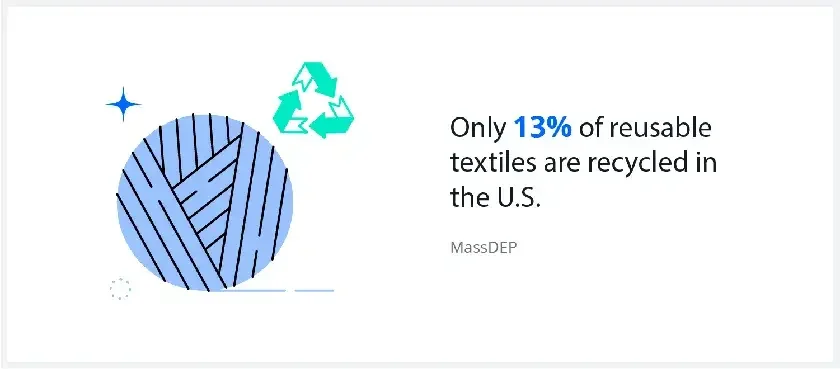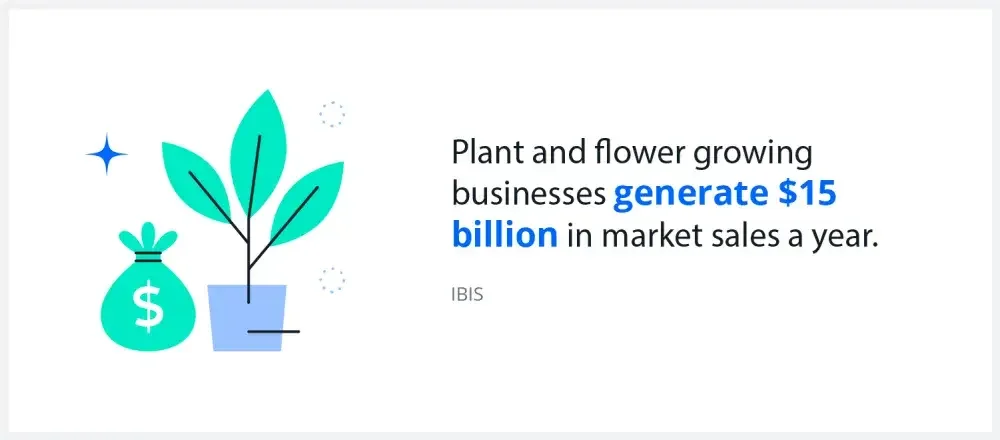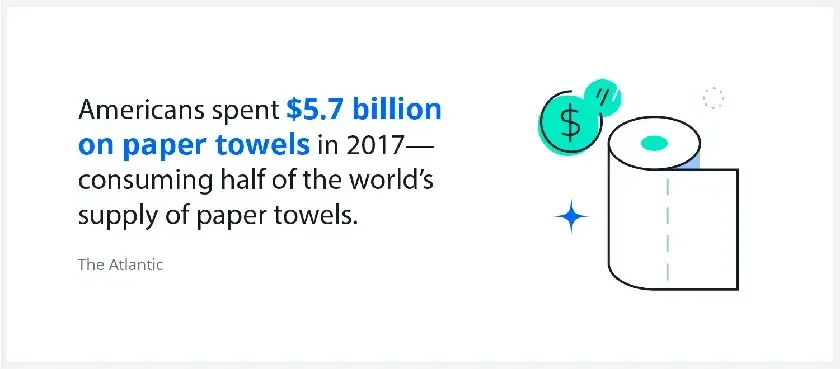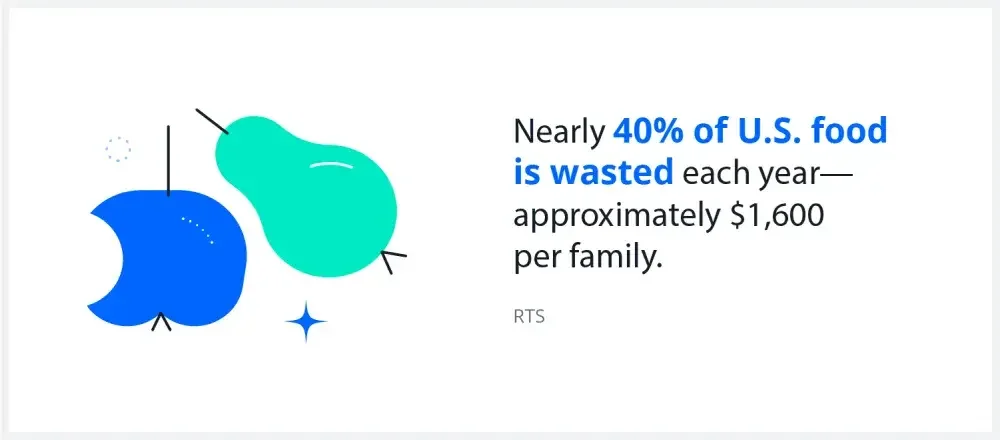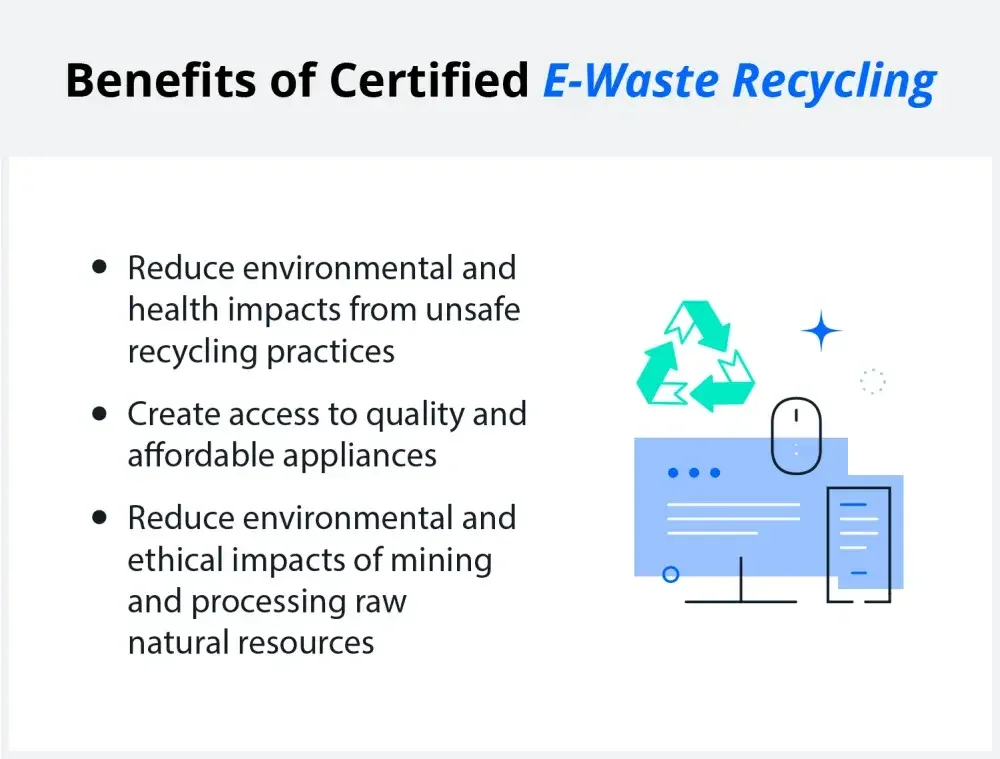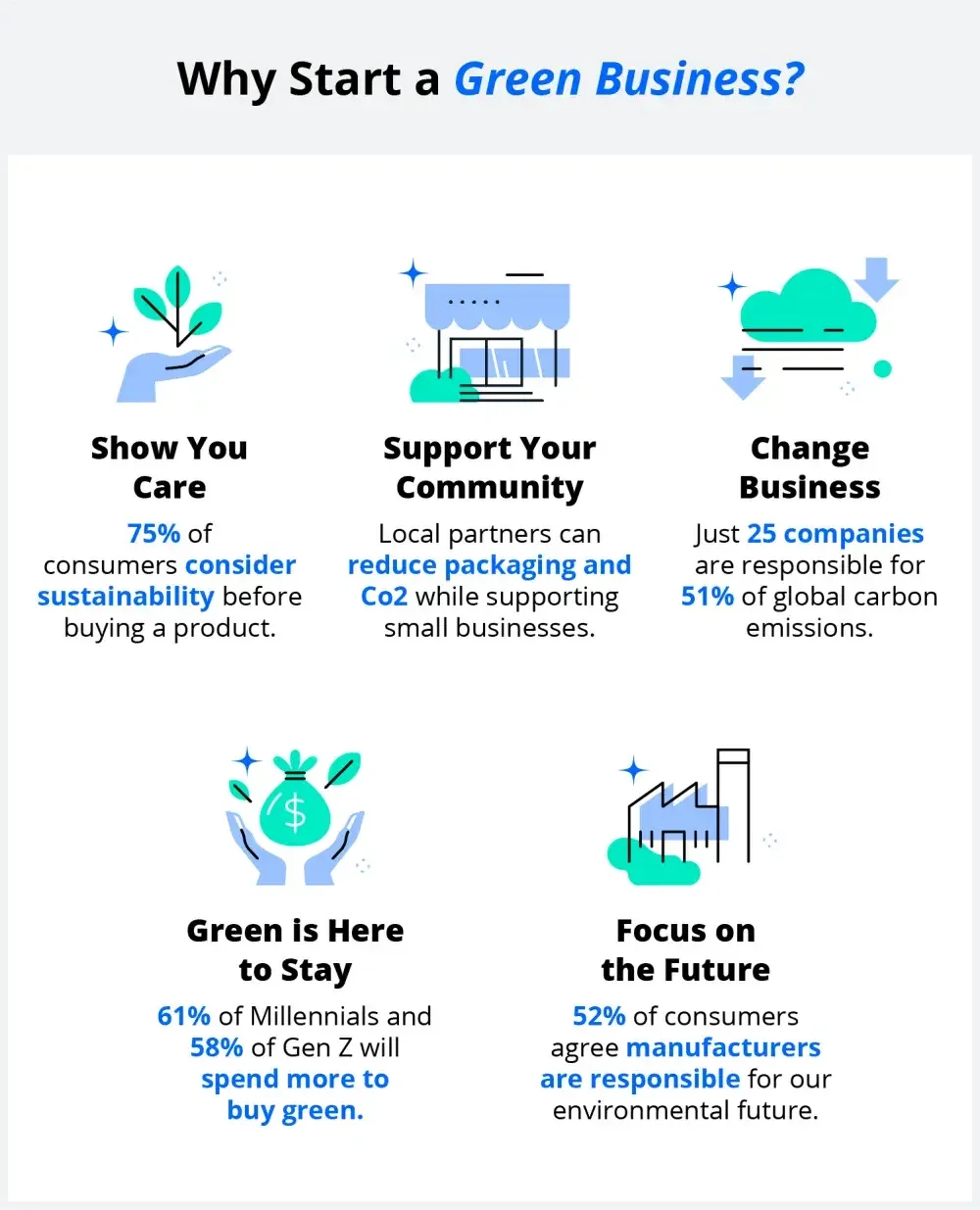The entrepreneurial dream is alive and well for many Americans, and more entrepreneurs are embracing the social responsibility of building a business with a desire to make the world a better place. Green businesses are seeing significant market growth and success as 65 percent of Americans want to buy from sustainable brands.
In fact, 61 percent of Millennials say they're even willing to pay more for eco-friendly products. Gen Z follows at 58 percent, indicating that this trend is here to stay. While consumers take responsibility for their own environmental impacts, 52 percent still believe it's manufacturers and businesses who are most responsible for the future of our environment.
With more consumers consciously choosing eco-friendly businesses, let's dive into what makes a business “green" and what steps you can take to start your own sustainable business.
What is a green business?
A green business prioritizes sustainability and conservation in their business model. They work to reduce their negative environmental impact as a company and may also support green initiatives through local partnerships and philanthropy.
Some green business options seem obvious, like solar panel installation, which promotes renewable energy and provides a green product. These green products are easy to identify as environmentally-friendly and meet a clear need for sustainability. It's a product that mindful consumers would specifically look to buy to meet their personal sustainability goals.
Other green businesses may not seem inherently eco-friendly, but they choose to prioritize sustainable materials and procedures. For example, a printing company may use recycled paper and solar energy to reduce any negative environmental impacts. Businesses like these can set an intentional standard of sustainability that serves as a key marketing tool when advertising to the majority of consumers who are looking to support sustainability.
Green business ideas
Green businesses are vital to repairing and protecting our environment, and they align with a cause consumers care about and want to support. If you're looking to leave your office job and pursue your passion for climate action, we have 40 green business ideas for you to explore.
Support sustainable fashion
Fast fashion is everywhere and generates billions of pounds in textile waste in the U.S. alone. What's worse, only 15% of recyclable textiles are reused. It's an issue that's been gaining attention and consumers have a growing interest in second-hand clothes.
If you have an eye for style, consider opening your own resale shop online or in-store to revive once-loved clothing. There are online services like Shopify that can help you get started. Of course, you can build and market your own site, and some people have found success simply selling on Instagram or other social media marketplaces.
Become a tailor
With the rise of fast fashion, consumers are buying significantly more clothes and keeping them half as long. Custom-made, quality clothing lasts longer and fits correctly, allowing the wearer to get more use out of each garment and increasing the lifecycle of our wardrobes.
Correct fits also mean fewer garments are being returned to retailers to either be re-sold and shipped or disposed of entirely. As a tailor, you can also reduce waste by prioritizing sustainable and ethical fabrics, educating consumers on sustainable fashion, and reducing the waste of ecommerce shipping.
Repair bicycles
Cycling will likely never go out of style, and it's a great way to reduce your carbon footprint and improve your health at the same time. Bicycles can be expensive, like any mode of transportation, and require care and maintenance to stay on the road.
Repairing bicycles is something you can easily start in your garage and build up with an online presence. Once you get started, you may even start collecting vintage bikes to refurbish and resell. While the bicycle dealership industry took a hit during COVID-19, it was growing steadily before the pandemic and will likely continue to grow after the economy stabilizes.
Grow your own food
Direct, local food sales are growing in the U.S. as consumers are looking to support their local producers. Local goods and organic food aren't just great for the economy, but produce much less waste than grocery producers do from packaging, large-scale production, and transportation.
If you have a green thumb, then you can get started with a small garden and a booth at the local farmers market for a couple of hundred dollars. You'll do best if you find a market gap beyond raw produce, like homemade spices and sauces, or canned goods like pickles and jams. These products will also allow you to sell year-round well after the harvest ends.
Launch a native landscaping business
Meticulously manicured grass lawns are a thing of the past and more homeowners are switching to native landscaping. Become an expert on the native plants in your area and their care, then launch an eco-friendly landscaping business to help convert lawns to support biodiversity and protect native habitats.
Additionally, you can help homeowners learn how to care for their lawns efficiently to save water and energy. Some trees and plants may even grow to help them save on their utilities.
Learn local floristry
Similar to catering, you'd be surprised to know how far flowers can travel to wind up in a bouquet! Some plants grow best in tropical environments, or maybe you want summer blooms in March. Either way, these plants require a lot of care to grow around the world and in greenhouses, then require a lot of specialized packaging to ship to your local florist.
Green florists specialize instead in using local and seasonal flowers in their arrangements. This way your flowers are always guaranteed to be available and fresh. Native flowers also support the local ecosystem, as well as supporting local growers. Finally, you'll save a lot of money and reduce carbon emissions with local shipping.
Grow healing tea and herbs
If you don't have the space for a huge garden of fresh produce, you can still grow your own products to sell. Herbs and flowers can grow well in pots, indoors and outdoors. These can be used to create holistic healing products like teas, spices, herbs, and potpourri.
If you're interested in beauty and wellness items, you can also use your homegrown herbs to add holistic properties to your bath salts, soaps, and the like. Not only can you guarantee organic and safe products, but you'll save cash and carbon by growing at home.
Design small-space gardening tools
Plant parenthood is thriving as people are looking to refresh and enliven their homes. This is especially true for renters who want to make their small spaces feel more inviting. The problem is that gardening traditionally takes a lot of space, creating a new market for clever gardening hacks.
You can design the systems and tools people need for their urban jungle relatively easily. Something as simple as a hanging shelf in a window or a modern and chic self-watering pot can maximize on space and decor while meeting the needs of plant parents everywhere.
Open a nursery and deliver plants
If you have a green thumb, you may enjoy opening a local nursery. Here you can specialize in native landscaping plants, flowers, ornamental house plants, or whatever greenery you enjoy most.
You can partner with other local businesses, like florists or landscapers, to sell your plants, or consider selling directly to households. Plants are a booming business right now, and selling gardening supplies with houseplants is a great way to connect with the community.
Keep bees for local honey and home goods
Bees are vital for healthy ecosystems and agriculture, and the best way for you to save the bees is to get your hands dirty. The huge benefit of keeping your own bees isn't just a fresh supply of honey, but the brand new and well-loved business opportunities that come with it.
Keeping bees will produce raw honey and honeycomb, both of which are sellable as is. The plants you grow around your hive may also create specialty honey that can fetch a higher price or stand out in the market. Otherwise, consider using your honey and wax to create moisturizing beauty products and bath bombs.
Create and sell organic beauty products
Organic beauty products are another DIY hobby you can turn into a green business from home to build over time. Brand name products can actually damage your skin and hair with harsh additives including fragrances, alcohol, sulfates, and more. It's why many consumers are making the switch to organic products they can trust.
Not only can removing damaging ingredients benefit the environment, but small-scale production, local sales, and purchasing packaging from ethical printers can boost your sustainability—making organic beauty a great green business.
Start green cleaning
Similar to our beauty products, many of our home cleaners have toxic chemicals that can irritate our families and may be hazardous to store or dispose of. Additionally, cleaning products create a ton of plastic waste as many consumers dispose of the whole bottle after use instead of just replacing the cleaning agent.
Families are looking to keep their homes clean and safe, so producing natural green cleaning products without plastic waste can be a great business opportunity. You can get started as a cleaning company dedicated to using environmentally safe products with minimal waste as a side hustle you can develop over time. You may also want to make your own cleaning products, which you can sell locally or with a subscription-based model.
Upgrade a dry cleaning business
Dry cleaning services have come a long way from what they once were, but still use harmful chemicals and chlorinated solvents. Leaking sewage or improper disposal of these chemicals can pollute the surrounding environment, and poor handling safety can also be harmful to employee health.
Many of these chemicals have safer alternatives available to protect both the environment and employees. A modern and eco-responsible dry cleaning business would prioritize non-toxic chemicals as well as responsible handling and disposal of chemicals and waste. Other green practices may include using recyclable garment bags and exclusively in-house dry cleaning.
Launch a new car wash
A commercial car wash uses about 150 liters of water to wash one car, and that number more than doubles for trucks and buses. The major environmental impact isn't just with the heavy water use, but that the waste water is filled with soaps, oils, and grease that can be harmful to the environment and wildlife when disposed of improperly.
The two best ways a car wash can limit this impact is through controlled water use and proper wastewater disposal. WaterSavers has requirements for eco-friendly partners including backflow prevention, equipment efficiency, and water discharge guidelines. Green car washes can also recycle their used water, reduce their waste of products like paper towels, and maintain restrictions on cars idling in line or in the lot.
Design sustainable household alternatives
Have you ever really considered how much waste is produced in your home? Everyday items like cotton rounds, paper towels, and produce bags can't be recycled and are easily replaced with sustainable alternatives.
Take note of the items around your house and find alternatives you can create and sell. Wax cloth wraps can replace plastic wrap, flannel cotton rounds can be washed, and produce bags can be sewn or woven for reuse. Packaging these sustainable items together is a great way to build your brand and generate sales as gift baskets or starter packs.
Open a second-hand store
Second-hand shops are a great way to reduce waste of everything from furniture to children's toys. You can easily open a store online to start generating revenue and save to open a brick and mortar store, should you prefer. You may also want to specialize in something like refurbished appliances or open a general shop with anything of value.
The big hurdle here is having the means up-front to store and buy products to resell. You could accept donations, but then you have to find sustainable ways to clear out products that aren't of any value to resell.
Refurbish furniture
Nearly 10,000 tons of furniture end up in landfills each year, while another 12 million tons of furniture are created to take its place. Refurbishing old furniture is an ideal way to keep once-loved pieces out of the landfill while giving consumers unique, trendy, and sturdy pieces for their home.
You'll definitely need to invest a bit upfront for this business idea, as you'll need a workshop to store and mend furniture, as well as the revenue to purchase new pieces and tools. However, once you get going, you may find that refurbished furniture can have a much larger return than smaller products.
Plan sustainable events
Event design relies heavily on disposable decor, transportation, and food—all of which can come with heavy environmental costs. Learn the ins and outs of event planning, then study up on how it can be made more sustainable.
Most event planners have a specialty, so figure out if you'd love to design weddings, enjoy lifestyle parties like baby showers, or if you'd rather plan corporate engagements. Each comes with its own specialties to learn and requires different levels of experience to get started.
Build a green catering business
Catering is a go-to for weddings, events, and business meetings, but these events can generate significant food waste and pollution through transportation. Green caterers work to reduce their environmental impact by composting leftovers, serving local and seasonal food, and using reusable linens and dishware.
Provide eco-friendly meal delivery
Similarly, eco-friendly meal delivery services deliver locally produced meals to your doorstep—reducing packaging, cross-country (and sometimes global) shipments, and the waste that comes from unsold produce at the grocery.
Meal kit services are a growing market that's expected to reach $20 billion by 2027. Partnering with local producers and building your brand now may offer huge returns for you in the coming years.
Sell sustainable food
Food production has a massive impact on climate change every step of its production, from the farm to our trash. In fact, animal agriculture alone produces 65 percent of nitrous oxide emissions a year, which has 300 times the global warming potential as carbon dioxide. Once the product is produced, it's then shipped from the farm to distributors, sometimes taking a global journey to finally reach your table.
As an environmentally responsible restaurateur, there's a number of things you can do to reduce your harm. Serving exclusively vegan food can help reduce the environmental harm of raising livestock, and local, organic food can reduce the impact of harmful pesticides and fertilizers. Additionally, proper portions and food inventory management can reduce food waste, while natural lighting and limited hours can reduce your energy consumption.
Compost food waste
Did you know that 80 billion pounds of food are thrown away each year in the U.S.? Grocery stores and restaurants are huge contributors to food waste, throwing away “ugly," old, and unfinished food every day. While much of this food isn't safe for consumption, it can still be used in compost.
Nutrient-rich compost is ideal for gardens and can be produced and used in a variety of ways. As a local composter, you can collect food waste from local businesses and even families to produce different kinds of compost. Not only can you earn cash for pick up and disposal of the food waste, but you can resell your compost to local gardeners and retailers.
Install smart and energy-efficient appliances
The smart home appliances market is anticipated to grow by 14% by 2027, meaning thousands of households will be looking for recommendations and installation for their new tech. While smart tech isn't inherently eco-friendly, most new appliances prioritize energy-efficiency—as do homeowners looking to save on utility costs
As a smart home technician, you can help consumers make smart decisions for their upgraded homes, including installing smart thermostats, lights, and sprinkler systems that can help reduce energy and water costs.
Support renewable energy
Homeowners and businesses are beginning to take matters into their own hands and install renewable energy sources themselves. If you know a thing or two about the industry, then you can get started as a solar panel or wind installer.
In addition to installation, you can offer maintenance, cleaning, and inspection on privately owned renewable energy sources. You may also want to sell the products yourself, or if you have the means, even produce them.
Offer sustainable consulting services
Of course, you don't have to produce your own green products to be a green business. If you're passionate about sustainability best practices, consider instead becoming a green business consultant. This way, you can help a variety of businesses convert their practices to be more eco-conscious and help build the green business boom.
Consider your current experiences and contacts to get started in a niche you know well. Once you build a reputation and more knowledge, you can expand to other local markets that you believe have the potential to go green.
Become a green infopreneur
For those who already have some expertise in sustainability, you may consider becoming an infopreneur. In this case, the product is yourself and the content you create. You can launch a blog, podcast, or YouTube channel to discuss sustainability trends and practices in business.
As long as you have the knowledge, this may be the easiest business to start. Still, it will take a lot of promotion and networking to start generating a profit. Consider starting your business as a side hustle, write an ebook, and start taking up speaking engagements to build your reputation.
Publish green news
If you have a network of sustainability heroes, then you may instead consider becoming a green publisher. This way you can leave a lot of the content creation to others and focus on building your publication's brand.
Your publishing business can go in several directions, from publishing a magazine with subscriptions to e-books that rely on sales. Start by taking into account your connections and personal experiences. Are you best with long-form content? Or maybe you know several working professionals who could produce 1,500-word articles for you. It will be easiest to work with what you have, then grow from there.
Try grant writing and fundraising
If you have nonprofit experience or other knowledge on earning grants and fundraising, then you can become a professional grant writer to help organizations receive funds for sustainability. There are several grants for sustainability research as well as sustainable practices and philanthropy that can help other green businesses excel. The trick is knowing how to write effective proposals, which many small businesses struggle with.
Start sustainable travel planning
Travel comes with huge environmental costs, including fuel used for jets, disposable travel products, pollution from car rentals and rideshares, and more. In fact, one flight across the Atlantic can generate as much Co2 as the average person emits in a year.
If you're a nomad at heart and know a thing or two about responsible travel, help others vacation with little environmental harm by becoming a sustainable travel agent. Here you can advocate for public transportation passes, promote eco-friendly hotels and destinations, and enjoy helping others enjoy a wonderful experience.
Become a green builder
Buildings are known to use a lot of resources during construction and well after they're built. They can also generate a lot of waste through construction and demolition, and they have a direct impact on the surrounding land and environment. In October 2020 alone, construction began on 1.5 million new residential homes, so it's no wonder that sustainable building is in the spotlight.
Nearly every facet of construction can be improved to be more sustainable, from installing Energy Star-rated windows to sourcing the raw building materials. If you're looking to become an independent contractor or a green building consultant, you'll want to get started with green construction certifications. LEED certification is the most well-known, but there are several programs to choose from.
Design eco-friendly kids' toys
It seems that half of the toy aisle is made of brightly colored plastic designed to be thrown away and replaced after a few years. The rules of play are changing, as major toy manufacturers are shifting to reduce packaging and use sustainable plastics.
If you have a passion for play then you may be the perfect candidate to get into the toy business. You can create your own toys with skills like sewing and woodworking. You may even want to invest in a 3D printer to get started. If you're not interested in designing your own toys, consider toy repairs and resale to help old toys spread joy a little further.
Invest in green businesses
If you're not necessarily interested in running the show you may find success as an investor. Every great idea needs financial support and with all of the directions climate activism can go, you'll have plenty of entrepreneurs knocking on your door.
Build green apps and software
There really is an app for everything, but that doesn't mean they're all good. They are easier to build than ever, so consider what needs you can fill with an app. Some apps check the ingredients and ethics of products with just a barcode scan. Others can tell you if your waste belongs in the trash, recycling, or compost. Get creative and consider what aspects of the eco-revolution matter most to you and how you can help
Open a local gift shop
Gift shops may be most well-known for their cheap novelties that will collect dust for a few years before being re-gifted, donated, or even thrown out. You don't have to use this cookie-cutter business model, though. In fact, you shouldn't!
Set out to create a gift shop filled with locally crafted goods people will actually enjoy. Showcase some of your city's best artists, sell locally printed and recycled postcards, and serve snacks from the bakery down the street. Staying local is a great way to build partnerships, promote the authenticity of your gift shop, and keep things green.
Dispose of community trash
Trash needs to go somewhere, and large items like furniture and appliances can be particularly difficult to dispose of. If you have a truck and don't mind a little dirty work, then you can be the person who makes sure community trash is disposed of properly.
While a lot of these items may end up in the landfill, that's much better than being left on the side of the road or in a body of water. Additionally, you'll make connections with local scrappers and recyclers—you can even earn a little extra money taking what is recyclable and repairable to anyone who wants it.
Recycle e-waste
New phones and better TVs debuting every year create a lot of e-waste in the U.S., which isn't just slow to decompose but can also leak toxic chemicals into ecosystems. Many of the raw materials used, like cobalt, also have human rights concerns associated with dangerous mining conditions.
Electronic recycling is vital to protecting our ecosystem and slowing the exhaustion of precious metals used in modern electronics. The toxic nature of some electronics means that it takes special care to be recycled properly, and the EPA has certification recommendations you can complete to build trust and become an electronic recycler.
Fund a co-op
Cooperatives primarily exist in agriculture and real estate, but they can really be applied to most business ventures. Co-ops are businesses that are partially owned by any workers who pay into them or contribute to the labor of maintaining them. They're community-oriented structures designed for equality and sustainability.
While it may not seem like an impressive investment at first, co-ops employ 10% of the world's working population. Additionally, the largest 300 co-ops reported a $2 billion turnover in 2019. Investing in your community cooperatives is a great way to improve the economic and environmental sustainability of your city.
Plan community trails for hiking and more
Someone has to build the thousands of miles of hiking, biking, and recreational trails in the U.S. and it could be you. Parks and recreation departments are always looking for new trails or ways to make current trails more accessible. With some experience in planning and resource management, you can get started building a reputation and earning contracts.
While it may seem destructive, trails help conserve woods and wildlands by giving hikers a safe place to explore without disrupting the local wildlife. Additionally, it makes these lands public green spaces, so they'll be protected and invested in for generations to come.
Produce recycled paper products
Paper cards, posters, RSVPs, and flyers aren't going anywhere soon, and the paper, shipping, and ink used in producing these products can generate a lot of waste. While many printers may use recycled paper, you can take it a step further by prioritizing all sustainable processes.
A huge factor in paper production is tree loss, so consider how you can partner with local organizations like a parks and recreation department to continue planting trees. Additionally, shipping has a huge carbon footprint, so it offers discounts for local consumers who can pick up their products. You can also get creative with your products by reducing any use of plastics and adhesives and even offer seed-bomb printing that is plantable after use.
Open an environmentally conscious salon
Salons use a lot of chemicals and disposable products like paper, foil, and plastics. Open a local salon or spa that prioritizes organic, local, and cruelty-free products, as well as sustainable water use and practices. Even if you're not a cosmetologist, you can partner with passionate professionals to fund and manage the business side of the salon.
Recycle waste into art
One person's trash is another's treasure, especially if you take the time to make something beautiful out of it. If you have a creative side, think of how you can use second-hand goods and waste to create something people will adore.
If you're a painter, try getting used frames and canvases at thrift stores that you can restore and reuse for something brand new. You can also find old vases, furniture, and fabrics you can use to create stunning and unique home decor.
Make your interior design services green
Interior design can be a green business, too. Some fabrics are more sustainably sourced than others, as are types of furniture, electronics, and appliances. Even the color you paint your walls can affect your energy costs by changing how well a room is lit.
Most people aren't experts on ethical companies and how different fabrics are sourced, which is why they hire responsible interior designers they can trust. Get to know the big brands in your space, as well as the local retailers and producers you can trust, and enjoy designing!
Keep your photography sustainable
Photographers sometimes have to travel huge distances for events, weddings, and scenic shots that can add up to a large carbon footprint. Additionally, studios can use a lot of energy to maintain their lighting, and staged photos may require crew travel, wardrobe purchases, and shipping, as well as decor, plastic, and paper waste in setting the scene.
Keeping your photography local is the best way to reduce the impact of travel in your photography. If you still travel, prioritize public transportation like trains and buses where possible. In planning your sets, try to take advantage of natural or low-energy lighting, and stay mindful of your printing processes to reduce waste and improper chemical disposal when applicable.
Create eco-friendly pet products
Pet products are filled with plastics that can wind up in our landfills and water systems. Consider how many plastic doggy bags, chew toys, balls, and treat bags our furry friends go through, then compare that with the thousands of dogs, cats, and other pet pals that live in the U.S. alone.
Americans spent $95 billion on their pets in 2019, so it's a good investment when done well. Your eco-friendly pet products can be anything from organic and safe shampoos and colognes, to natural and waste-free chews and treats.
Refurbish electronics
While some electronics are beyond repair and should be recycled, many others can be refurbished and resold. Household appliances may get fancier, but they don't often get better, so used appliances are a great deal for many households.
Other items like computers and video game systems may get upgrades every couple of years, but they're also mobile and more prone to damage than a lot of electronics. This creates a great market for repairs. Even when the next generation comes out, some people will still be looking for a good deal on an older device.
First steps to starting a green business
Define your product or service
As with any business venture, your first step is to find a clear market gap that you can fill. Even if there are other local businesses that meet these needs, brainstorm ways that you can do it better or differently. The more unique your product or service, the more demand you can generate.
Build a business plan
Once you have a vision for your business, you'll need to start putting it all together in a business plan. The business plan includes details like your own company analysis, a competitor analysis, and specifics on how you'll get started funding and promoting your business.
Register and fund your business
Next, you'll begin laying the foundation that will help you actualize your business. This includes obtaining any business licenses or certifications you need, establishing an LLC, and pitching your idea to investors.
While this is a general outline of how to get started, building a business requires a lot of paperwork, planning, and time to succeed. Registering your business, drafting contracts, and securing funding are all legal processes that can become costly quickly. Once you know you want to start a business, we can help you figure out what you need to start your business journey. Then, we'll continue to offer business and legal services every step of the way.
Sources: CGS | EPA | BLS | The Atlantic | Lumi


